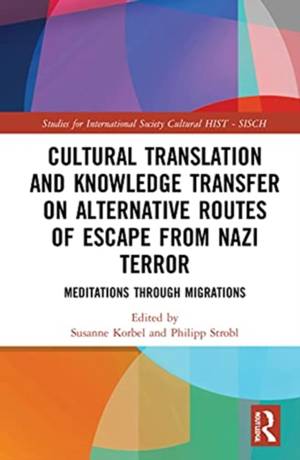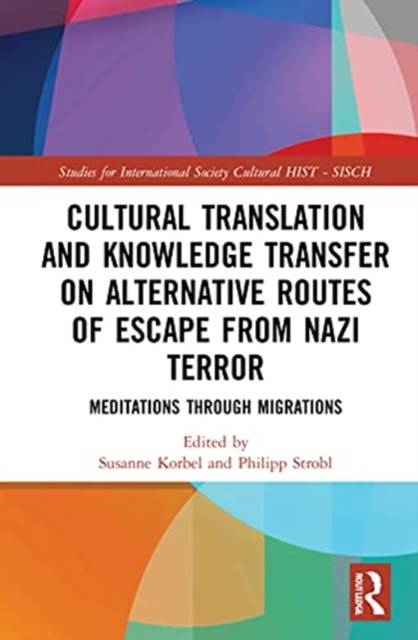
- Afhalen na 1 uur in een winkel met voorraad
- Gratis thuislevering in België vanaf € 30
- Ruim aanbod met 7 miljoen producten
- Afhalen na 1 uur in een winkel met voorraad
- Gratis thuislevering in België vanaf € 30
- Ruim aanbod met 7 miljoen producten
Cultural Translation and Knowledge Transfer on Alternative Routes of Escape from Nazi Terror
Mediations Through Migrations
Omschrijving
The book investigates and compares the role of artistic and academic refugees from National Socialism acting as "cultural mediators" or "agents of knowledge" between their origin and host societies. By doing so, it locates itself at the intersection of the recently emerging field of the history of knowledge, transnational history, migration, exile, as well as cultural transfer studies. The case studies provided in this volume are of global scope, focusing on routes of escape and migration to Iceland, Italy, the Near East, Portugal and Shanghai, and South-, Central-, and North America. The chapters examine the hybrid ways refugees envisaged, managed, organized, and subsequently mediated their migrations. It focuses on how they dealt with their escape in their art and science. The chapters ask how the emigrants located themselves--did they associate with ethnic, religious, and/or cultural affiliations, specific social classes, or specific parts of society--and how such identifications were portrayed in their knowledge transfer and cultural translations. Building on such possible avenues for research, this volume aims to offer a global analysis of the multifarious processes not only of cultural translation and knowledge transfer affecting culture, sciences, networks, but also everyday life in different areas of the world.
Specificaties
Betrokkenen
- Uitgeverij:
Inhoud
- Aantal bladzijden:
- 265
- Taal:
- Engels
- Reeks:
Eigenschappen
- Productcode (EAN):
- 9780367569112
- Verschijningsdatum:
- 6/08/2021
- Uitvoering:
- Hardcover
- Formaat:
- Genaaid
- Afmetingen:
- 152 mm x 229 mm
- Gewicht:
- 544 g

Alleen bij Standaard Boekhandel
Beoordelingen
We publiceren alleen reviews die voldoen aan de voorwaarden voor reviews. Bekijk onze voorwaarden voor reviews.








